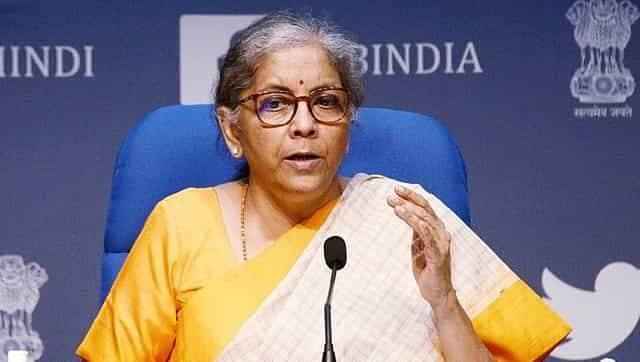Union Budget 2023: Why mobile security needs Sabka Saath for Sabka Vikas
With any new transformational digital public initiative, there are also potential risks and challenges that must be addressed

Union finance minister Nirmala Sitharaman
India’s Union Finance Minister Nirmala Sitharaman presented the first Union Budget of Amrit Kaal on 1 February, 2023 and laid the foundation of the blueprint for India@100. The future is all about digital, technology, and fintech.
The government’s vision for the future includes a technology-driven and knowledge-based economy with strong public finances and a robust financial sector.
The finance minister highlighted the importance of fintech services in India, which are powered by the digital public infrastructure including Aadhaar, PM Jan Dhan Yojana, Video KYC, India Stack, and UPI. She also mentioned that an Entity DigiLocker will be set up for use by MSMEs, large business, and charitable trusts. This will be towards storing and sharing documents online securely, whenever needed, with various authorities, regulators, banks, and other business entities.
Related Articles
Creating awareness on data storage, breaches
As India marches towards superpower stature, there is an ardent need for the government to factor in two crucial elements — create awareness of appropriate usage and security to protect and counter data breaches. We keep reading reports of Aadhaar data being breached and being available on the dark web. With any new transformational digital public initiative, there are also potential risks and challenges that must be addressed. Security has now become a necessity and a compulsion.
The citizens of New Bharat will increasingly use their mobile phones to access the digital public infrastructure including Aadhaar and Entity Digilocker. Whether it is the digital infra for agriculture announced by the FM or the PM Vishwakarma Kaushal Samman (PM ViKaS); the farmers, artisans, and craftsmen of emerging Bharat are going to access the same on their mobile phones.
The mindset towards data protection, especially with respect to mobile and digital devices has to undergo a paradigm shift as we march towards India@100. Securing the ultimate convergence device is the need of the hour and our time starts now.
Deploy Mobile Security Framework
It is time to deploy a robust Mobile Security Framework on a Cloud-based model that empowers every citizen of Bharat and India with greater agility, faster go-to-market, and scalable and easy deployment. Every citizen will expect a comprehensive mobile app, device, and transaction security that empowers her/him to have a highly secured and enhanced user experience.
The citizens will need mobile security for essential as well as desirable or aspirational public digital infrastructure. Knowing that young India is the future, FM announced the National Digital Library for children and adolescents and the ‘Bharat Shared Repository of Inscriptions’, which will be set up in a digital epigraphy museum, with digitisation of one lakh ancient inscriptions in the first stage. No guesses for pointing out that the young ones of India will access these repositories on their mobile or digital devices. Don’t we have the responsibility to secure their devices?
The finance minister has emphasized that the government will further the reforms in the financial sector and innovative use of technology, which are leading to financial inclusion at scale, better and faster service delivery, ease of access to credit, and participation in financial markets. Users will need to be careful and adequately equipped to handle the transactions with proper safeguards.
It is time to revolutionize Mobile Application Security with proprietary innovations such as Runtime Application Self Protection (RASP) based solutions, which enhance Mobile App Security effortlessly. Such innovations provide unmatched protection to ensure mobile apps are accessed in a safe and secure environment.
Another important perspective for India@100 as highlighted in the Economic Survey FY23 is that efforts are underway to promote international trade settlement in Indian Rupees.
Digital currencies to revolutionise financial transactions
The Reserve Bank of India (RBI) has already announced some steps since July 2022. Once these initiatives gain traction, dependence on foreign currency would potentially reduce, making the economy less vulnerable to external shocks. e-Rupee or Central Bank Digital Currencies (CBDCs) will become a reality soon.
Digital currencies, such as the e-Rupee, will soon revolutionise the way Indian businessmen and corporates conduct financial transactions internationally and domestically. And Indian businessmen, start-ups, and new-age entrepreneurs, who will be doing cross-border transactions, using the e-Rupee and CBDCs need protection and security for their mobile and digital security.
As the RBI provides clear guidelines and regulations for the use of the e-Rupee, as well as ensuring their compatibility with existing financial infrastructure, there is an expectation that all related institutions in the ecosystem will also have to standardize security measures. Furthermore, fostering collaboration and communication between central banks, financial institutions, and other stakeholders with respect to security (institution as well as users across platforms and devices) will be critical to ensuring the smooth and efficient rollout of the CBDC.
As the Government unveils several pro-citizen initiatives with respect to ease of living and doing business, bolstering mobile security also needs Sabka Saath for Sabka Vikas.
The writer is Founder & CEO, Protectt.ai—an integrated and innovative mobile security platform to give Indians freedom from mobile frauds & cyber threats. He tweets @manishmimani Views expressed are personal.
also read

Budget 2023: Why Nirmala Sitharaman's proposals are growth enablers for EV and shared mobility industry
Proposal for energy transition of Rs 35,000 crore and the rise in capex by 33% are both positive initiatives

Union Budget 2023-24 puts India on the path to food and energy security
By extending Centre's 50-year low-cost capital support by another year, states can clean up their balance sheet for future financing

Budget 2023 recognises infrastructure as nation’s growth engine
Increased government expenditure leads to job creation in addition to boosting private consumption and investment spending


